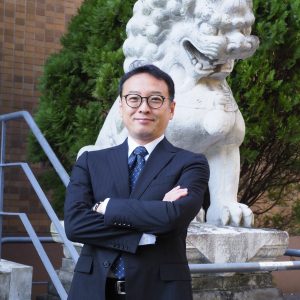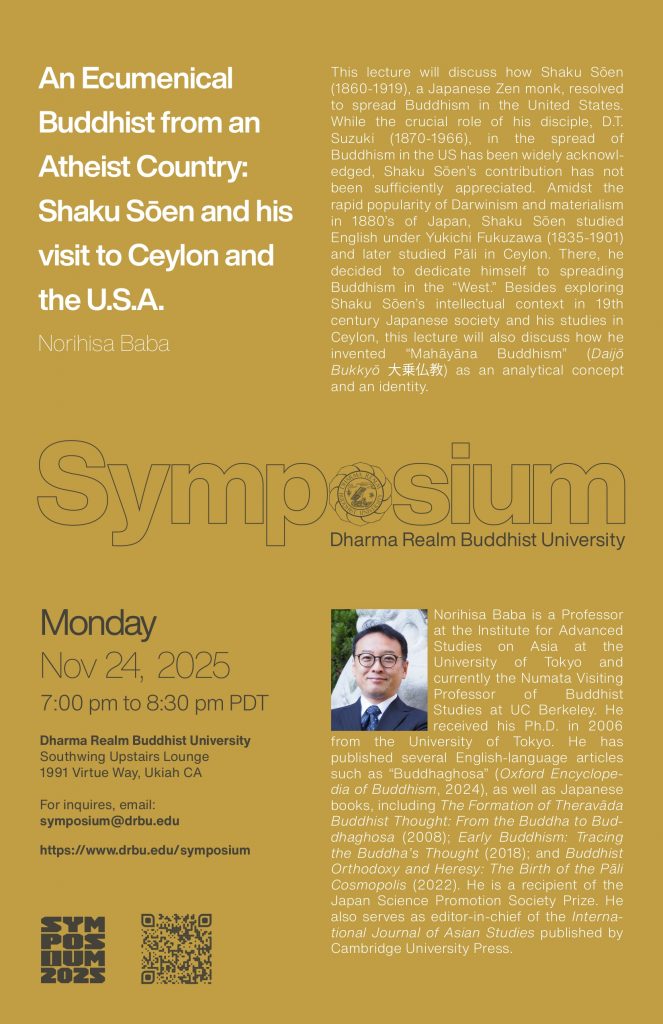
An Ecumenical Buddhist from an Atheist Country: Shaku Sōen and his visit to Ceylon and the U.S.A.
Ukiah, CA 95482
Lecture by Professor Norihisa Baba
This lecture will discuss how Shaku Sōen (1860-1919), a Japanese Zen monk, resolved to spread Buddhism in the United States. While the crucial role of his disciple, D.T. Suzuki (1870-1966), in the spread of Buddhism in the US has been widely acknowledged, Shaku Sōen’s contribution has not been sufficiently appreciated. Amidst the rapid popularity of Darwinism and materialism in 1880’s of Japan, Shaku Sōen studied English under Yukichi Fukuzawa (1835-1901) and later studied Pāli in Ceylon. There, he decided to dedicate himself to spreading Buddhism in the “West.” Besides exploring Shaku Sōen’s intellectual context in 19th century Japanese society and his studies in Ceylon, this lecture will also discuss how he invented “Mahāyāna Buddhism” (Daijō Bukkyō 大乗仏教) as an analytical concept and an identity.
Speaker Bio
Norihisa Baba is a Professor at the Institute for Advanced Studies on Asia at the University of Tokyo and currently the Numata Visiting Professor of Buddhist Studies at UC Berkeley. He received his Ph.D. in 2006 from the University of Tokyo. He has published several English-language articles such as “Buddhaghosa” (Oxford Encyclopedia of Buddhism, 2024), as well as Japanese books, including The Formation of Theravāda Buddhist Thought: From the Buddha to Buddhaghosa (2008); Early Buddhism: Tracing the Buddha’s Thought (2018); and Buddhist Orthodoxy and Heresy: The Birth of the Pāli Cosmopolis (2022). He is a recipient of the Japan Science Promotion Society Prize. He also serves as editor-in-chief of the International Journal of Asian Studies published by Cambridge University Press.
For more information: symposium@drbu.edu
